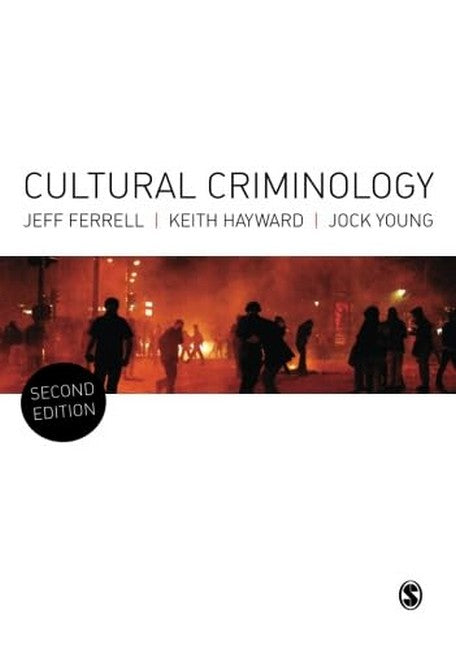Jeff Ferrell is Visiting Professor of Criminology at the University of Kent, UK, and Professor of Sociology at Texas Christian University, USA. He is author of the books Crimes of Style, Tearing Down the Streets, and Empire of Scrounge. He is co-editor of the books Cultural Criminology, Ethnography at the Edge, Making Trouble, Cultural Criminology Unleashed, and Cultural Criminology: Theories of Crime. Jeff Ferrell is founding and current editor of the New York University Press book series Alternative Criminology, and one of the founding editors of the journal Crime, Media, Culture: An International Journal (winner of the Association of Learned and Professional Society Publishers' 2006 Charlesworth Award for Best New Journal). In 1998 he received the Critical Criminologist of the Year Award from the Critical Criminology Division of the American Society of Criminology. Keith J. Hayward is Professor of Criminology at the University of Kent, UK and holds visiting positions at universities in Australia, Brazil, and the United States. He has published widely in the areas of criminological theory, spatial and social theory, visual and popular culture, and terrorism and fanaticism. As one of the leading figures in the field of cultural criminology, Dr Hayward is particularly interested in the various ways in which cultural dynamics intertwine with the practices of crime and crime control within contemporary society; as a consequence, he has written on everything from the role of documentary filmmaking in criminology to the existential allure of 'Jihadi cool'. He is the author, co-author, or editor of ten books, the most recent being, Cultural Criminology (2016), a four-volume edited collection for Routledge's Major Works series. Currently, Dr Hayward is completing a short (non-criminological) book on 'infantilization' and the life course. Jock Young, one of the foremost criminologists of our time, is Professor of Sociology and Head of the Centre for Criminology at Middlesex University. His work and theories have had a significant influence on the shape of criminology, sociology and politics.
Request Academic Copy
Please copy the ISBN for submitting review copy form
Description
Chapter 1: Cultural Criminology: An Invitation Chapter 2: The Gathering Storm Chapter 3: The Storm Breaks: Cultural Criminology Now Chapter 4: A Cultural Criminology of the Everyday Chapter 5: War, Terrorism and the State: A Cultural Criminological Introduction Chapter 6: Media, Representation and Meaning: Inside the Hall of Mirrors Chapter 7: Against Criminological Method Chapter 8: Dangerous Knowledge: Methods of Cultural Criminology Chapter 9: Conclusions
The new edition provides a timely update of an important book - timely not because its ideas were dated or lacking in relevance, but rather because events of the last decade have confirmed the significance of the arguments advanced in the original edition. Not only has the cultural field been shown to have an increasing importance for criminal justice policy and practice, but criminological theory and research have also demonstrated the complexities of its analysis. The new edition updates the original argument about the importance of cultural analysis for criminology through an expansive array of examples and case studies as well as through a highly thoughtful account of the ways in which criminal justice has always been intertwined with culture. The book also engages closely with related approaches in criminological theory to generate a closely argued account of the significance of culture for criminology -- Professor Alison Young Updating and expanding their path-breaking appreciation of the fundamentally cultural foundations of crime both as law enforcement target and as behavior pursuing the charms of deviance, in their second edition, Ferrell, Hayward and the late Jock Young introduce "cultural criminology" within the long historical sweep of social thought on crime. Their far-reaching and generous appreciation of diverse contributions to the cultural criminology movement is heuristically explosive. On virtually every page their text will offer the keen reader multiple suggestions for taking research on crime and deviance in novel directions. As criminology faces a crisis of confidence, this rare work shows how a new generation of students can fit promising and practical investigations of crime and deviance under a single comprehensive canopy. -- Professor Jack Katz

